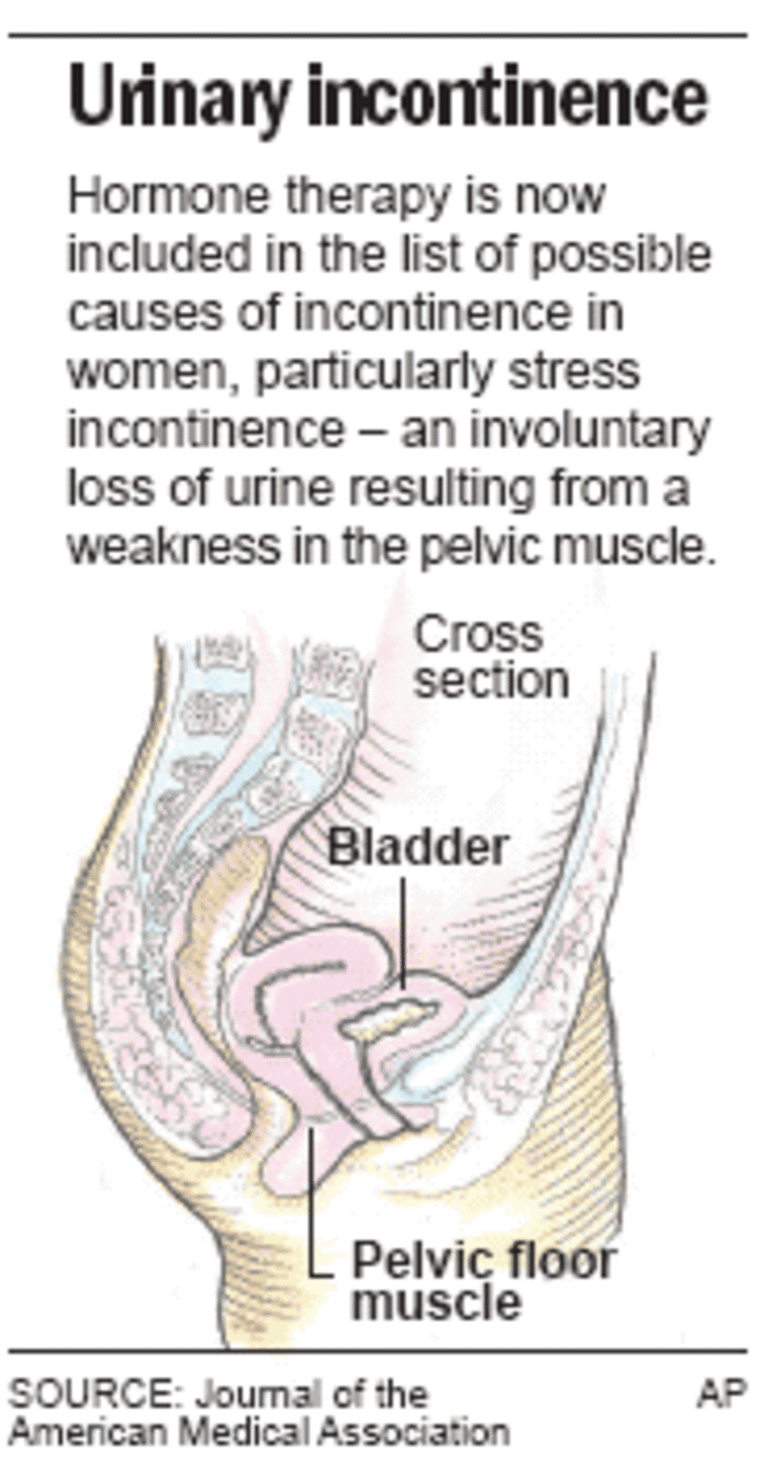Researchers have found yet another problem that hormone pills taken at menopause seem to make worse, not better: incontinence.
The findings came from the same landmark government study that in the past few years linked the widely used supplements to a higher risk of heart attacks, strokes, breast cancer and dementia.
Estrogen and progestin have long been thought to help prevent or lessen urine leakage in menopausal women.
“We were hoping to find a gleam of hope for estrogen” after all the earlier negative findings, but the results with incontinence were disappointing, too, said lead author Dr. Susan Hendrix, a gynecologist at Wayne State University.
The findings, published in Wednesday’s Journal of the American Medical Association, come from research on 27,347 women, ages 50 to 79, participating in the Women’s Health Initiative study.
Compared with women taking dummy pills, those on estrogen pills for one year were 53 percent more likely to develop urinary incontinence by year’s end. Those on pills containing both estrogen and progestin faced a 39 percent higher risk.
Highest risk for stress incontinence
The highest risks were for stress incontinence — urine leakage prompted by pressure on the lower abdomen from sneezing, laughing, coughing or walking. It can result from weak pelvic muscles.
Women taking estrogen pills faced more than double the risk of developing stress incontinence, and risks were almost as high for women on pills containing both hormones.
Also, women who already had any incontinence faced increased risks of it worsening after a year — a nearly 60 percent higher risk for those on estrogen-only pills and a 20 percent higher risk for those on combined pills, compared with the placebo group.

Millions of menopausal women already have quit using hormones because of earlier results from the same study. For years, hormones had been marketed to women as a way of staving off many of the ills associated with aging, including heart disease.
More than 13 million Americans have some form of urinary incontinence. It is much more common in women because of gender differences in urinary tract anatomy plus the strain of pregnancy and childbirth.
The study defined incontinence as ever leaking even a small amount of urine unintentionally; 64 percent of the participants said they had. Treatments include pelvic exercises, changes in diet, behavioral therapy, medication and surgery.
Some previous studies and anecdotal reports suggested potential benefits from hormones, and many doctors have prescribed them for the condition.
The pills are approved for treating menopause symptoms such as vaginal dryness, and hormones’ beneficial effects on vaginal tissues were thought to extend to the bladder.
Drug maker disputes study results
Dr. Ginger Constantine of Wyeth Pharmaceuticals, which makes the pills used in the study, said the new results are inconclusive because the study was designed to investigate health risks other than incontinence.
Constantine said that Wyeth has never promoted its hormone pills for treating incontinence, and that relatively few women using the pills take them for incontinence.
Dr. Catherine DuBeau, a geriatrics specialist at the University of Chicago, said the study does not address other forms of hormones, including creams, which DuBeau said she will continue to prescribe for incontinence.
The results underscore the need for more treatments and awareness about incontinence, which is debilitating and under-diagnosed, partly because many patients are too embarrassed to mention it to their doctors, said Cheryle Gartley, founder of the Simon Foundation for Continence, an advocacy group in suburban Chicago.
“There’s tremendous need for bright minds, more science, more industry involvement, because our population is not getting younger and we have a long way to go for cures,” Gartley said, who had not seen the study.
Nationwide, prescriptions for hormone supplements fell from 16 million in the first half of 2002, before the first results from the government study were released that summer, to about 11 million in the first half of 2004, according to Wyeth.
About 25 percent of women who quit hormones have resumed taking them, said the pharmaceutical company, which has begun offering a new low-dose pill.
